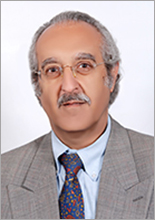Barriers to the Growth of Housing Finance in the Arab World
With a third of the population currently under the age of 15 and dire projections of future housing need, increased mortgage and housing lending is an urgent priority in the Arab world (Mirkin 2010). Currently, mortgage loans account for less than 10 per cent of loan portfolios in the region, low by international standards. Africa, East Asia and Latin American and the Caribbean estimates put mortgage loans at 10, 16 and 20 percent of total loan portfolios, well above the Arab region.
The presence of housing finance across the region is uneven as it is for other segments of the financial system. In Kuwait and Morocco, mortgages comprise over 45 percent and 30 per cent of the loan portfolios respectively. However, this drops to 15 percent in Jordan, Lebanon, Tunisia and the UAE. Some Gulf Cooperation Council (GCC) countries provide direct finance of mortgage programs through subsidized loans to fulfill their constitutional mandate to endow citizens with homes, land or interest-free construction loans. However, this advantage is regularly restricted to men or citizens with defined limited income, not young people looking to start out on their own.
Arab governments have been making strides at improving and expanding mortgage finance markets with varying degrees of success. Challenges are significant and entrenched. If Arab countries are going to expand the mortgage finance sector to meet impending need, they are going to need to address significant challenges in the legal, regulatory and foundational aspects of mortgage finance.
For the mortgage finance market to expand, Arab countries need to tackle the legal issues inherent in securing property rights, ensuring proper registration and shoring up procedures and laws regarding creditor rights. Algeria, Egypt, Saudi Arabia have taken steps in this direction.
Further, mortgage finance expansion will require an increase in long-term funding instruments and risk management tools. For example, promoting mortgage bond and mortgage-backed securities will reduce lender exposure to liquidity and interest risks. Several countries, including Egypt and Jordan, have recently sought to reduce this risk by issuing bonds through mortgage refinance companies (Hassler 2011).
However, in order to ensure the effectiveness of long-term funding instruments, Arab countries must address more fundamental issues in their debt markets. Better-developed debt markets would provide a reliable yield curve for government debt and a benchmark for pricing private securities. No country in the region has fulfilled this pre-condition for more stable private securities and markets.
Finally, Arab governments need to provide adequate legislation and regulations for the creation of mortgage-backed securities. Adequate legislation and regulation will require increased investment in housing pricing indices, more reliable rating and pricing and a more robust securitization chain. Morocco and Tunisia have already drafted legislation on mortgage-backed securities and Morocco has even gone so far as to develop legislation on mortgage-covered bonds.
The current demographic transition and youth bulge may foreshadow an impending housing crisis. The risk can be addressed by establishing an adequate legal and institutional framework and removing market distortions in order to attract private investments to affordable housing and employment generating activities needed.
References
- Hassler, O. 2011. “Housing and Real Estate Finance in Middle East and North Africa Countries.” Financial Flagship. World Bank, Washington, DC.
- Mirkin, Barry. 2010. “Population Levels, Trends and Policies in the Arab Region: Challenges and Opportunities.” AHDR Research Paper Series, UNDP.
Wafik Grais is an International Senior Adviser specializing in Islamic finance, financial regulation, investment financing, private equity management, and corporate governance with expertise in SMEs and green growth financing. He was co-founder and chairman of Viveris Mashrek, a Cairo-based, financial advisory services company specialized in private equity investments in SMEs, licensed by Egypt's Financial Supervisory Authority. He spent 28 years in international finance notably with the World Bank in Washington DC where he held several senior positions both in operations and at corporate levels. He holds a Ph.D. in Economics.
